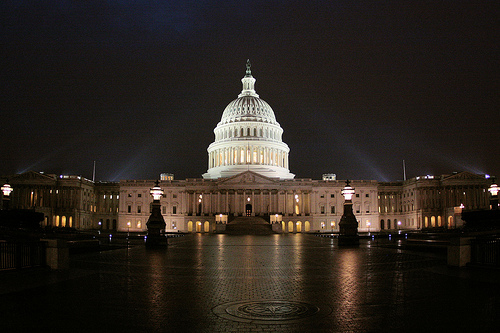
As most people celebrated the New Year with confetti and champagne, Congress was on Capitol Hill trying to reach a last-minute agreement. The New Year’s negotiations finally ended when House Republicans agreed to a deal passed in the Senate, which was pulled together by Senators Harry Reid (D-NV) and Mitch McConnell (R-KY). But even though Congress reached an agreement, there is still a long road ahead.
The compromise extends unemployment benefits and Bush-era tax cuts for middle and lower-income Americans, while increasing taxes for the top income bracket, meaning individuals earning more than $400,000 or households earning more than $450,000. This change will bring in around $600 billion in new tax revenue from the wealthiest taxpayers, which may sound like good news to the majority of Americans, but the Congressional Committee on Taxation has estimated that extending tax cuts will actually cost the Treasury about $4 trillion over the next 10 years.
So what does that mean for reducing the federal deficit? Well, like I said, the agreement isn’t perfect, but it did help avoid a hasty shift towards big spending cuts. These cuts would have had a huge impact on government agency programs, including the U.S. Forest Service and other conservation programs. In December, American Forests worked with groups like America’s Voice for Conservation, Recreation, and Preservation (AVCRP) to meet with staffers and advocate for these programs. Although the agreement temporarily spared cuts, it still left a lot to be determined in 2013.
The decision on budget sequestration has been rescheduled for two months from now. Congress will also face the big question about whether or not to raise the debt ceiling in February or March. Such measures may provide short-term answers and relief for the economy, but there’s still the underlying issue Congress needs to address: how to shrink the gap between revenues and expenditures.
Perhaps a new year will provide a fresh outlook for Congress, especially with the newly elected members arriving on Capitol Hill this week. It will be interesting to see what happens over the next few months, as the new Congress begins to tackle these big decisions on the national debt and economy.